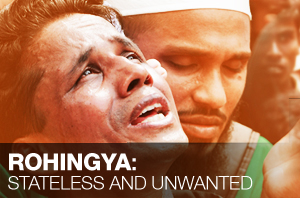Mrauk- U, Arakan State:
The humanitarian aids are needed to supply urgent in the village of
Zula Para ( a Rohingya village) of Maruk- U as the condition of village
is very serious of foods crises , according to a villager of Maruk- U.
“In our village, we had 430 houses before burning by Rakhine mobs on October 23 and now we have only 7 houses remaining.”
“Nearly 100 villagers are killed from our village and we are able to
bury 68 dead bodies and the rest dead bodies are missing.”“In our village, we had 430 houses before burning by Rakhine mobs on October 23 and now we have only 7 houses remaining.”
“At present, we are living at our old village and making temporary tents with bamboo and straw, hay, grass and leaves. The military is giving us full security. But, we do not get any help from outside, even water. So, we are facing food crisis and medicine.”
The local Rakhine villagers do not sell us anything and the security force also does not help us to get ration. We are not allowed to go out of the village. We are living like in a jail, said a villager from the locality.
“We are getting food only from our paddy fields. We take paddy from our fields, and pounded to get rice. We cook it and eat it without salt, chili, vegetables, and oil,” said a local youth.
“Therefore, we want the rations for our survival from international community. We do not hope to get ration from our government because, it wants us to be starved and dead.”
The Thein Sein government and Arakan State government officials only are supplying aids to Rakhines community not to us. So we need aids from any groups who want to help us to save the reaming villagers, said an elder from village.
